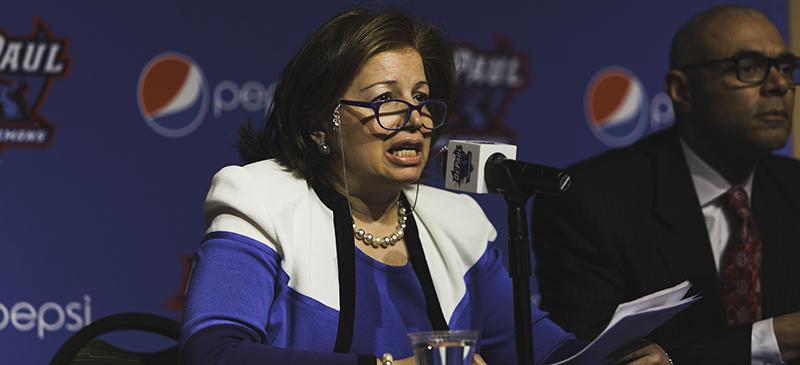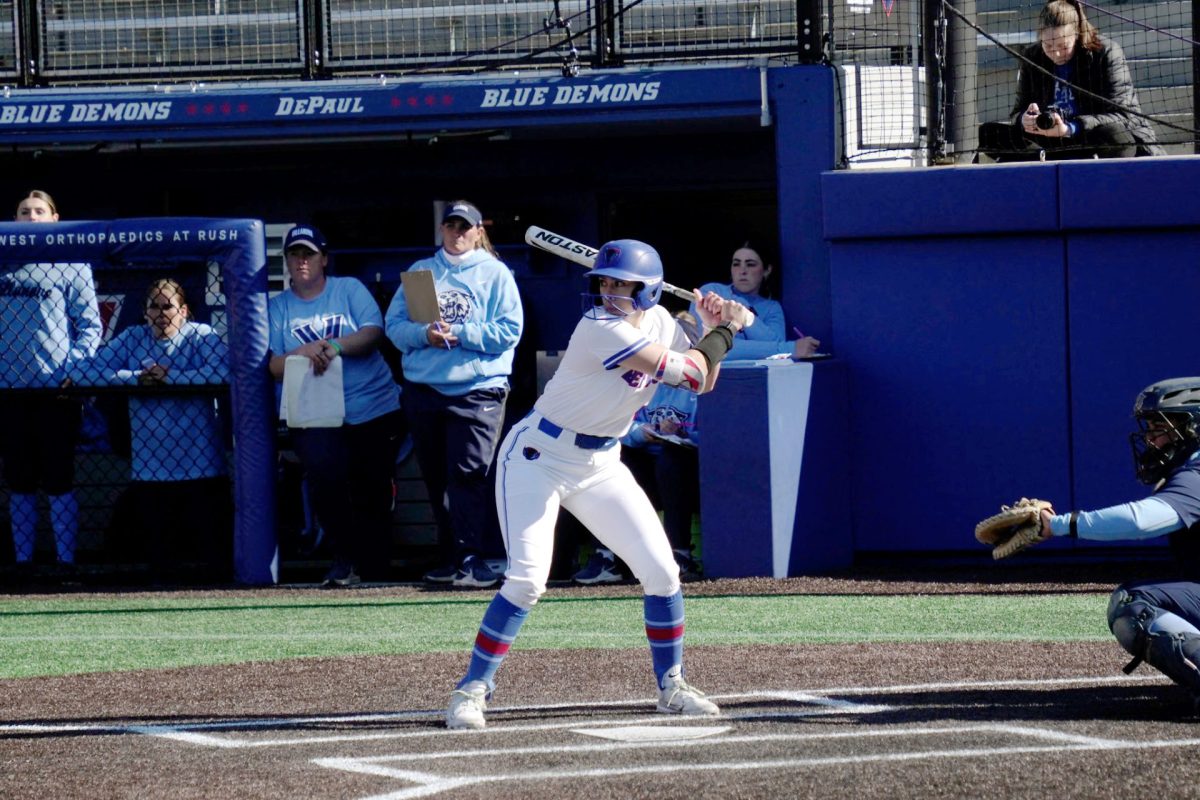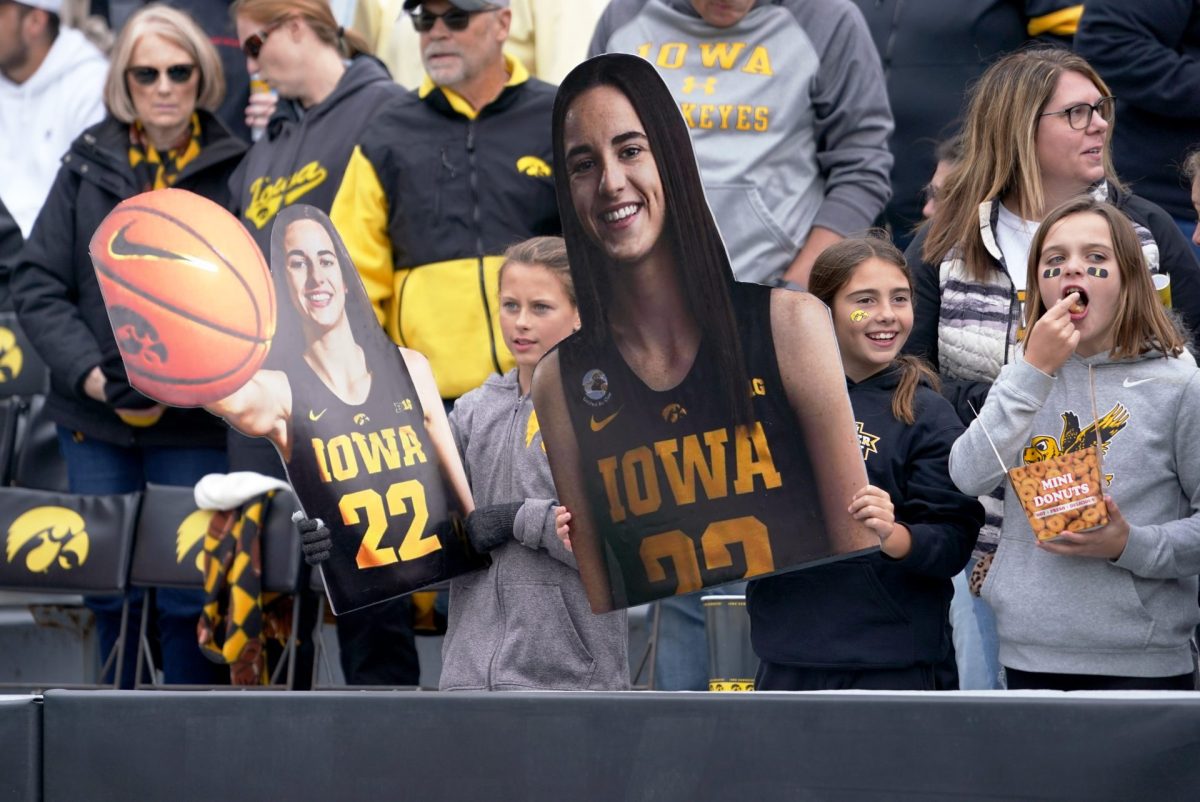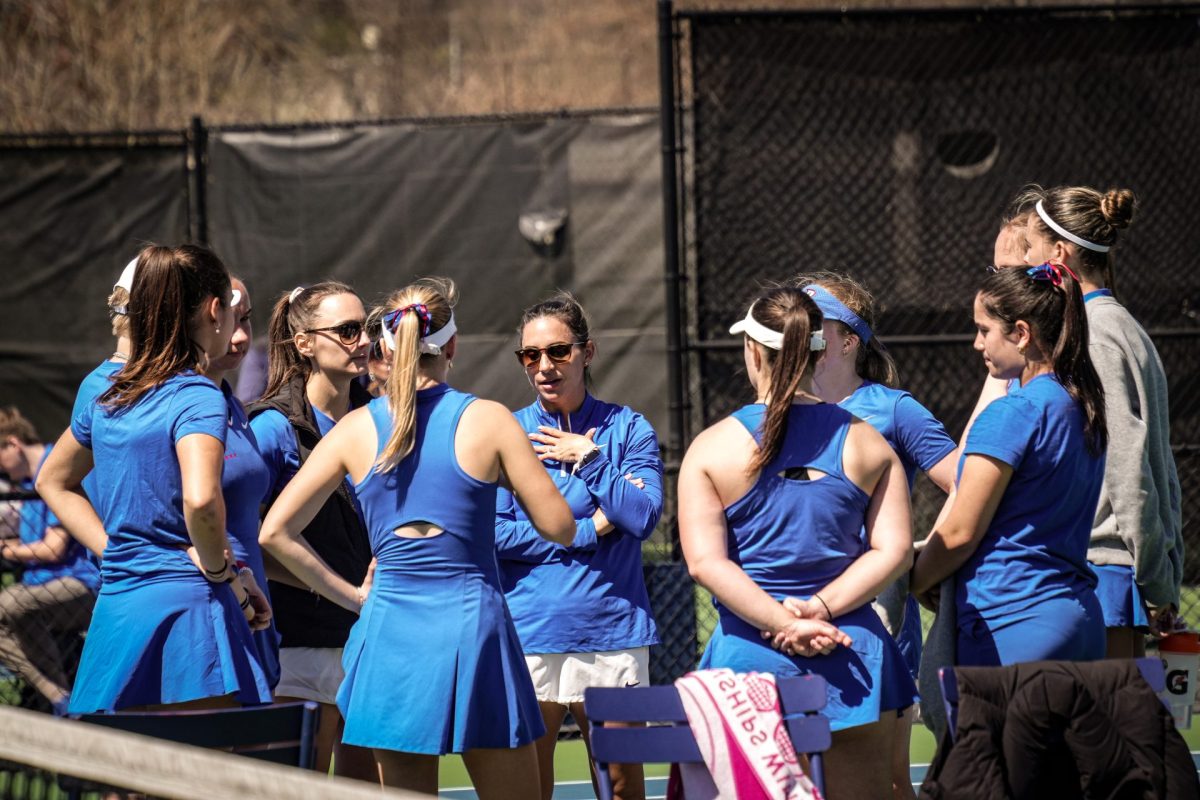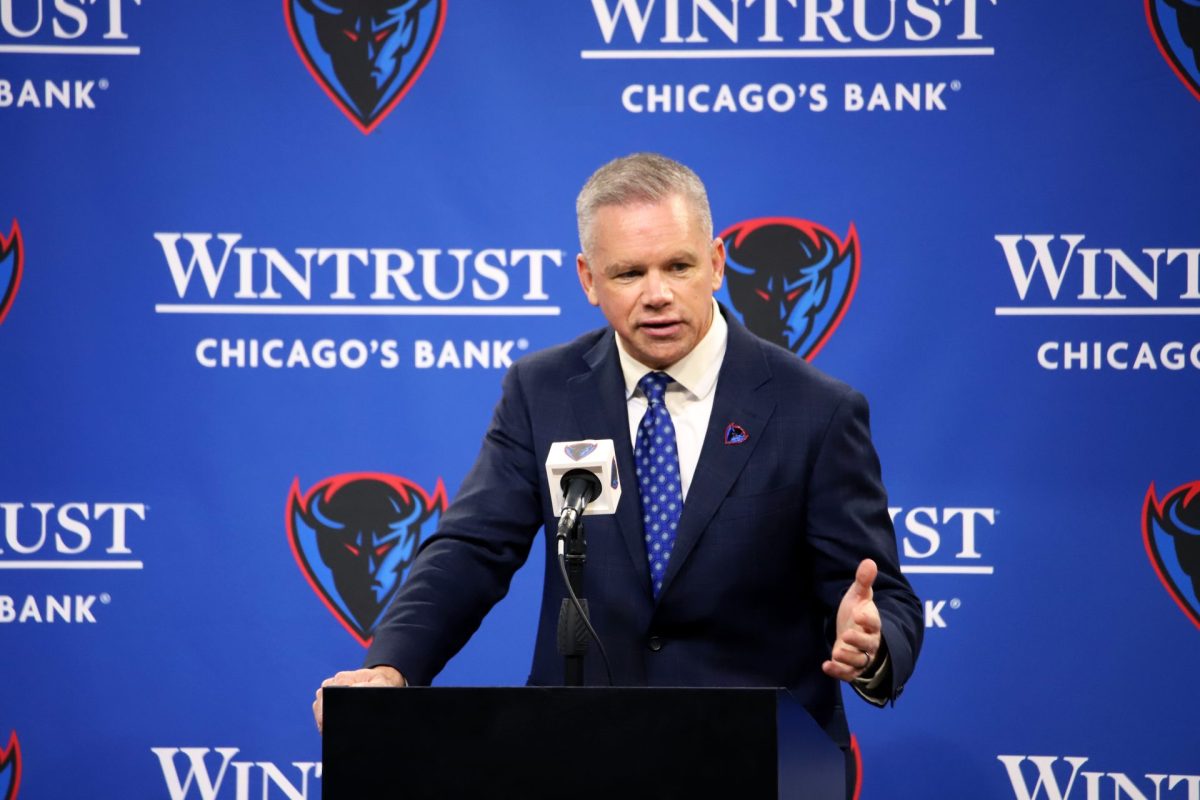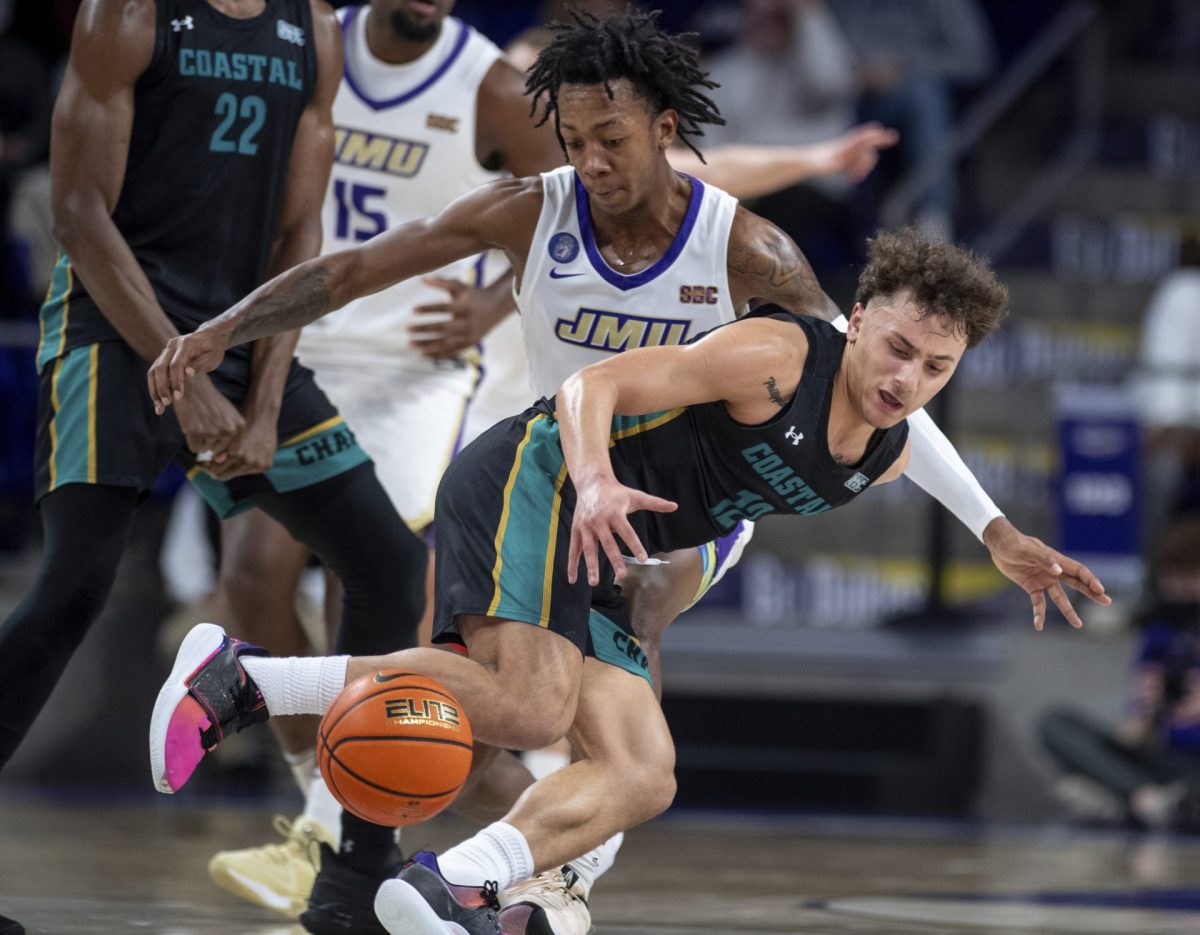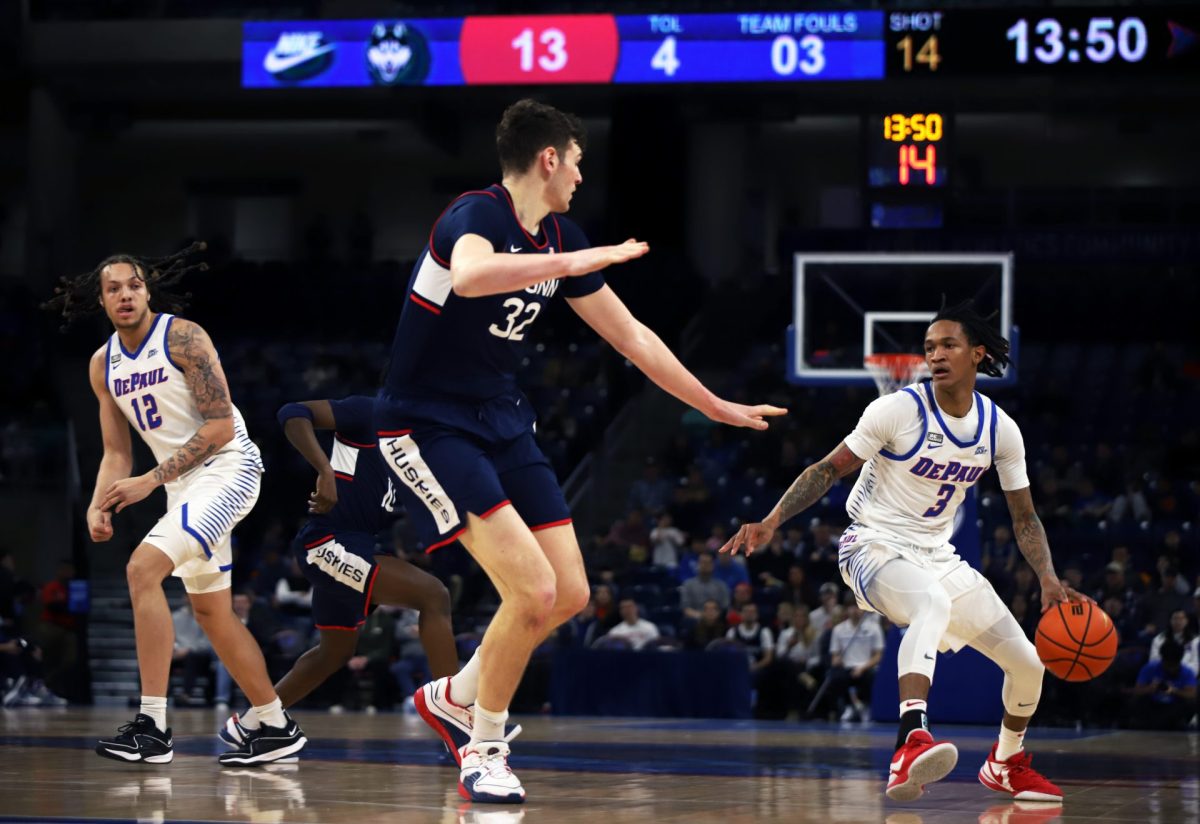If there was anything last week’s star-studded Women in Sports panel, sponsored by CSN Chicago and DePaul University, could agree on, it’s that they’re tired — tired of continuously fighting for equal female rights within the world of sports.
“I’m pissed off,” head coach of the DePaul women’s basketball team Doug Bruno said. “Not just about this country, but [about] every single religion [being] anti-female. Every single country… You can’t find any place on the planet that treats females equally.”
In a panel moderated by Chicago Sports Net’s Kelly Crull, Bruno, alongside other Chicago-based sports professionals had a chance to speak their mind on the struggles that women face in the world of sports — whether you’re an athlete, in the front office, or in the press box. From NBC5 Chicago’s Peggy Kusinki, to Chicago Red Star forward, Sofia Huerta, the Chicago Bulls’ VP of Marketing & Branding, and DePaul’s own Athletic Director, Jean Lenti Ponsetto, every facet was covered.
In partnership with DePaul University, CSN gave attendees an exclusive look at their upcoming six-part documentary “Tomboy” that takes a deeper look into the involvement of women in sports.
Some of the industry’s biggest names were featured to speak candidly on the topic, including former UFC champion, Miesha Tate, Little League World Series pitcher, Mo’ne Davis, and former DePaul women’s basketball star Sarah Kustok.
“I don’t think [tomboy] is a term that’s used often anymore, but when I was growing up, […] I would wear tennis shoes and shorts and t-shirts, [and] they were big,” Huerta said. “I was like a boy… And that was something I was kind of insecure about. Like people would say, ‘Sofia, she’s like a boy,’ and now that’s such a good thing. We’re known as athletes and not referred to as ‘boys,’ – we’re just athletes who love to play sports.”
The film touches on struggles including how women feel the pressure to conform to society’s norms in having the ‘perfect body.’
However, Bruno says ‘shape’ is the one word he refuses to use with his team, in an effort to erase that stereotype.
“Being an athlete and being a strong female athlete has nothing to do with being an athlete, if you’re a male or female,” Bruno said. “It’s not shape — it’s fitness. That’s the way we approach this because we want our women to be strong of mind, strong of character.”
Despite these everyday battles, women in sports continue to succeed. The DePaul women’s basketball team earned their fourth consecutive title as Big East women’s basketball regular season champions, a bid to the NCAA tournament for the 15th time, and won a total of seven Big East awards, including Brooke Schulte as player of the year, and Bruno as coach of the year.
Ponsetto says this high level of work and recognition continues to happen with DePaul’s female athletes, not just in part because of the coaching staff and the athletes themselves, but because of the quality support system that Father Holtshnieder and those before him have continued to stress.
“I’d say it was always a lot easier being in the inside of our world at DePaul than it was maybe, sometimes outside,” Ponsetto said. “When you have that kind of support internally, your confidence soars and you have a great opportunity successful.”
Even with such a high success rate, the issue of media coverage still arises in this day in age. According to the University of Minnesota’s Tucker Center for Research on Girls and Women in Sports, only four percent of all sports coverage includes women’s sports.
“The reason it doesn’t get covered [isn’t because women don’t have penises, it’s] because the people making the decisions do have penises,” Kusinksi said.
Just last year, the NBC5 sports reporter had to fight for coverage on the DePaul women’s basketball team making the NCAA tournament, in competition with a major league baseball team who in her words did “not [earn] the coverage.”
“If I wasn’t there that day […], I don’t know if that [coverage] would’ve gotten on there,” the two-time National Emmy Award-winning journalist said. “You don’t have to have the looks to be in television; be my boss, own the station, be the general manager, be the president, be the news anchor… We need women in those decision-making roles.”
“It’s got to be men and women in board rooms who grew up in the Title IX era, and having felt the oppression – and in some cases, a lot – have to be put in decision-making positions, where they change the culture and make the shift happen,” Ponsetto said.
DePaul’s athletic director furthers the notion that because of the lack of coverage, the responsibility lies that much heavier on not just the marketing team, but the athletes and the coaching staff to try and sell why women’s sports is so great.
“Sometimes, I think as women we’re a little bit sheepish about asking someone to come out and watch us play, and watch us perform,” Ponsetto said. “Because just in case it doesn’t go real great or it’s not spectacular, I’m going to have to own that and be responsible for it.”
And that’s where the preparation of instilling confidence into young girls comes into play.
For Kusinksi, it starts with something as simple as encouraging her eight-year-old daughter, Stella to be aggressive in her fouls – even if you’re losing, and even if it the other parents yell at you.
“I was so disheartened, because I thought, ‘Wow, it’s got to start at home,’” Kusinski said. “I actually pulled the mom aside after the game where no one could see us, and I said, ‘Hey, it was positive reinforcement. We’ve got to teach these girls to be aggressive, and to be strong, and to play tough – even when you’re losing 21-2 when you’re eight years old…’ We still have some ways to go.”
She says there’s a reason there’s a slash through the title of the film — females must continue to shed those labels, work to make a name for themselves, and never allow for anyone to put them in a box.
From body image, to equal pay and much more, the documentary covers it all.
“Tomboy” premieres on CSN, Monday, March 13 at 9:00PM/CT. Bruno also pointed out that it coincidentally begins right after the women’s NCAA tournament selection show, where DePaul women’s basketball will certainly earn a spot.


